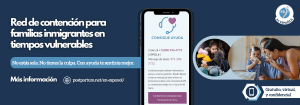At PSI, we understand that storytelling has the power to save lives, and we are honored to provide a space for survivors to share their stories. This article is part of a subsection of the PSI blog dedicated to survivor stories. Please note that this story has not been edited, and caution is advised as distressing themes related to perinatal mental health may be present. If there are specific trigger warnings for an article, they will be listed below. Links to resources can be found at the bottom of this page.
Trigger warning: traumatic birth, suicidal ideation, intrusive thoughts

As an RN, with over six years of psychiatric and emergency experience, I went into pregnancy with no concerns about my ability to navigate my mental health. Unfortunately, after a devastating diagnosis of an incompetent cervix that sent me into labor, an emergency surgery, and placed me on complete bedrest at 19 weeks, my pregnancy bliss was turned into the scariest, most devastating time of my life. I was given less than a 12% chance that my child would survive. This, coupled with the fact that I was now in bed 24/7 with absolutely nothing else to do but think about the fact that “today could be the day my son dies” caused me to suffer from extreme anxiety with depressive features. Fifteen weeks were spent in that bed, with only my fight or flight to keep me going.
At 33 weeks, and by some miracle, I gave birth to my beautiful four-pound boy, Jordan, who had a five-week NICU stay. I was now postpartum (after not walking for 15 weeks; not even being able to sit up to eat) trucking it up to the NICU with my freshly pumped breastmilk. All of this while having stitches and wearing those horrific postpartum diapers. Not once was I asked if I was okay. My milk was more important than my mental health. There was a darkness that continued to grow inside of me.
My son was alive and healthy, but still, I just felt so sad. Many times in the car alone I thought about just driving off the bridge because my family would be better off without me here. I had this overwhelming feeling that I failed my son and therefore my family. The intrusive thoughts were unbearable and I couldn’t seem to get a handle on them. My body had begun to process the trauma it endured, both physically and mentally, there was no escaping it. I struggled with night tremors, where I would wake up screaming, and the rage I felt was nothing like I had ever experienced. I internalized all of it. How could I explain my feelings? My son was alive and healthy, I shouldn’t be anything but grateful.
For several months I spent every day just going through the motions, feeling like a human zombie, until one particular day I remember I just felt so heavy. We arrived at my son’s doctor’s appointment and when she asked the routine “baby blues” question I just started bawling. I couldn’t even mutter one word… and I also couldn’t stop. The doctor said, and I’ll never forget this, “Well, the GOOD news is, a lot of people feel like you.” Nothing else. She didn’t even give me a pamphlet.
Something awoke in me that day. Maybe it was the anger regarding the fact this professional knew I was struggling and did nothing. I began to research, and with the help of my husband, I found PSI and other coping mechanisms for postpartum moms. Every day since that day I have made my mental health a priority. Whether it’s by sharing my story online to hopefully help even one mom, doing yoga, or talking to someone – I do something every day to promote healing. The journey has not been linear for me, but it has been so worth it. I am in a DNP program with the ultimate goal of opening my own perinatal mental health clinic. I hope that any mom who is currently suffering finds the light and reaches out for help. Life is too short to be spent in the dark. Find your light.
Get Help
Learn More about Perinatal Mental Health Disorders
Free, Online Peer Support Groups, including Perinatal Mood Support









